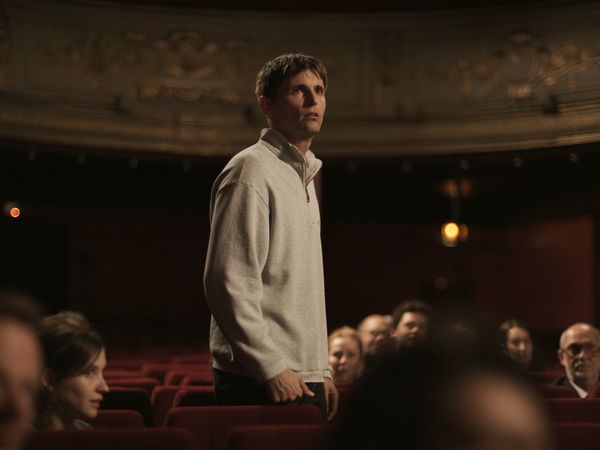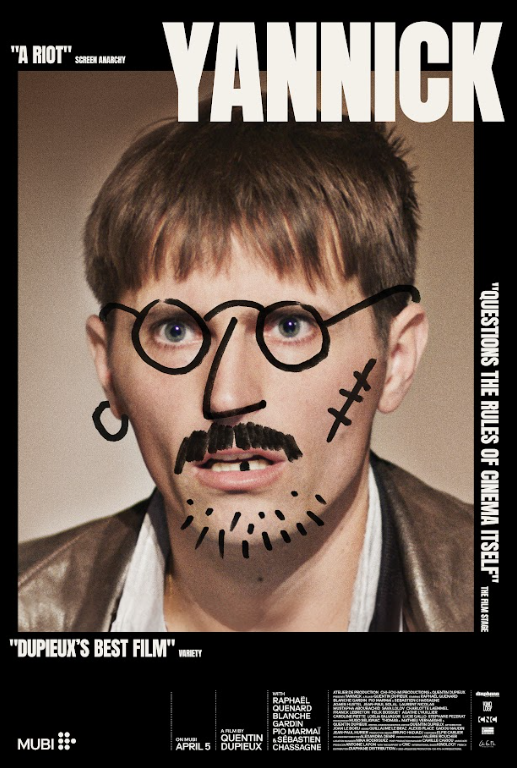Eye For Film >> Movies >> Yannick (2023) Film Review
Yannick
Reviewed by: Jennie Kermode

“All the world’s a stage,” said Jaques in Shakespeare’s As You Like it, “And all the men and women merely players; They have their exits and their entrances.” What he didn’t say, though it follows on logically enough if you think about it, was that some miss their cues and others barge in too early. And what if the play’s not very good? What then?
Some poor players surrender meekly to life’s vicissitudes, but others, disregarding the cost, are determined to take command of their own destinies. Such a man is Yannick (Raphaël Quenard), a night watchman who does his job diligently (or so he tells us, and we have no reason to doubt him) and who therefore thinks it reasonable that others should do the same. That includes actors, and theatre directors, and playwrights. Watching a boulevard comedy in a small theatre, Yannick feels betrayed. He doesn’t get many nights off. he travelled for an hour on the train to get there, and then walked for another 15 minutes. He expected to be entertained. So he stands up and says so.

Things escalate, as indeed they have a tendency to do in the films of Quentin Dupieux. This is a good week for the French director, who recently learned that his work will be opening the Cannes Film Festival. It has been a heady climb since 2010’s Rubber, his low budget breakthrough about a tyre who comes to life. Yannick does not appear to be part of a coherent career plan, if he’s ever had one. It’s a side venture, an experiment in art for its own sake, but that’s exactly the kind of thing he excels at. This may be, ironically, rather stagey, but for all its artificiality and slightness, it packs an emotional punch.
Dupieux has never been afraid to tell rather than show. He’s the master of the meandering onscreen anecdote, and here a tight time limit – the whole thing runs not far over an hour – keeps the story from getting completely lost. increasingly frustrated by the way the actors respond to his intervention, as if they were looking down on him because he’s an ordinary working class man who doesn’t use long words, Yannick decides to show them that he can do better. Alongside the absurdity and general silliness, there is a measure of menace. Pushed out of the world that they understand, nobody else seems to know what to do, and as the power balance shifts around, it emerges that Yannick is not the only one now prepared to cross boundaries.
If this were all there was, it would soon get wearing, no matter how clever. There’s more at stake here, however, as Dupieux explores the dynamics between the characters and examines the nature of comedy. Yannick, notably, is not the only person failing to laugh during the early scenes in which we watch the play. What is it that does amuse people? Perhaps its is simplicity. Perhaps it is the suffering of others. Whatever it is, when it comes, it feels natural in spite of all the artifice. Yannick himself emerges as a kind of holy fool. The genius is in the last shot of his face, before it ends, this sweet eventful history.
Reviewed on: 04 Apr 2024

















